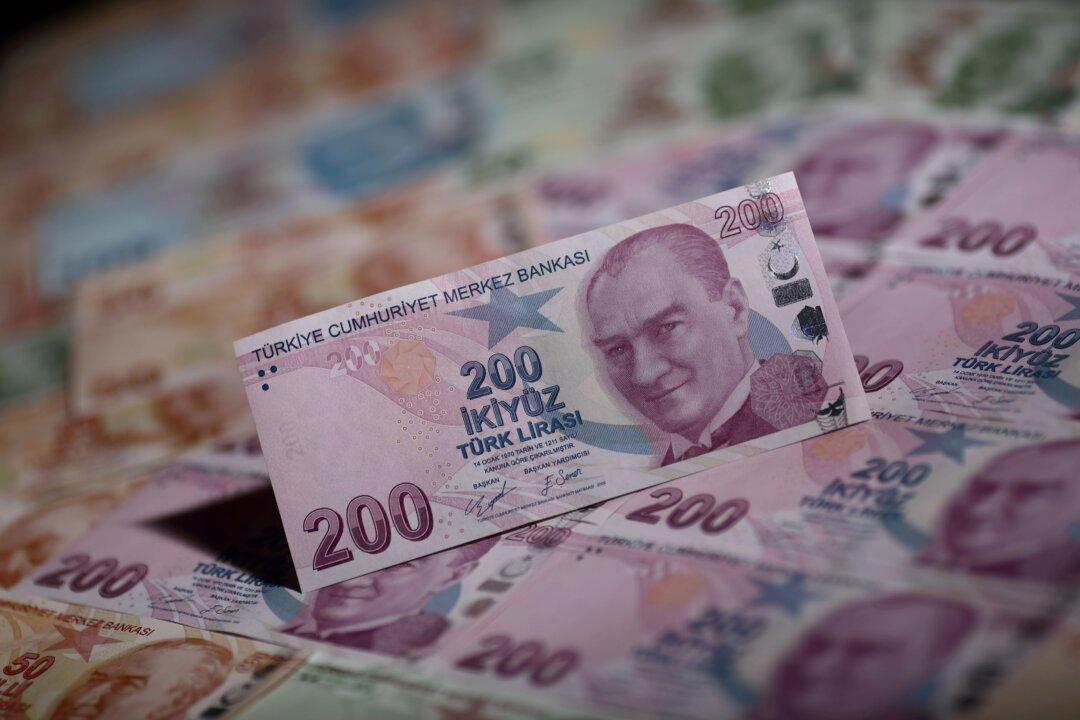Turkey’s annual inflation has hit its highest level in 24 years, worsening the cost-of-living crisis facing the country, even as political opposition parties claim that real numbers are worse than official figures.
The 12-month Consumer Price Index (CPI), which measures inflation on an annual basis, hit 85.51 percent in October, according to a press release from the Turkish Statistical Institute on Nov. 3. This is the seventeenth consecutive month that inflation has risen in Turkey. It is up by 3.54 percent from the previous month. The lowest inflation rate was in the communication and education sectors, which both rose by over 30 percent.





